Protests against delayed pensions in Jharkhand as COVID relief for marginalized backfires

22% of the SC and ST households together reported having old-age pensioners in the households, with 22% widow pensioners, and 4% disability pension holders, but 68% of the SC and 59% of ST pension-holders were yet to receive the ex-gratia assistance as on October 2020.
Suchitra, TwoCircles.net
New Delhi: A strikingly fierce visual of women sitting in dharna was witnessed on January 29 in which elderly people, widows, and disabled persons of marginalized communities in the Barwadih, Latehar district of Jharkhand took to the streets in large numbers. They were protesting against the non-payment of social security pensions for as long as six months. After a rally through the town, they sat on a dharna at the Block office to voice their demands with spirited speeches and slogans.
Many of the most disadvantaged populations in Barwadih, like particularly vulnerable tribal groups, were involved. For several of the protestors, particularly those living alone, the meagre pension sum of Rs 1,000/month are a vital lifeline.
Hundreds of widows and old citizens who do not receive a pension at all have joined them. Most of them have applied, often multiple times, but they have no idea of the status of their application; or have been excluded from the scheme due to problems such as biometric identification.
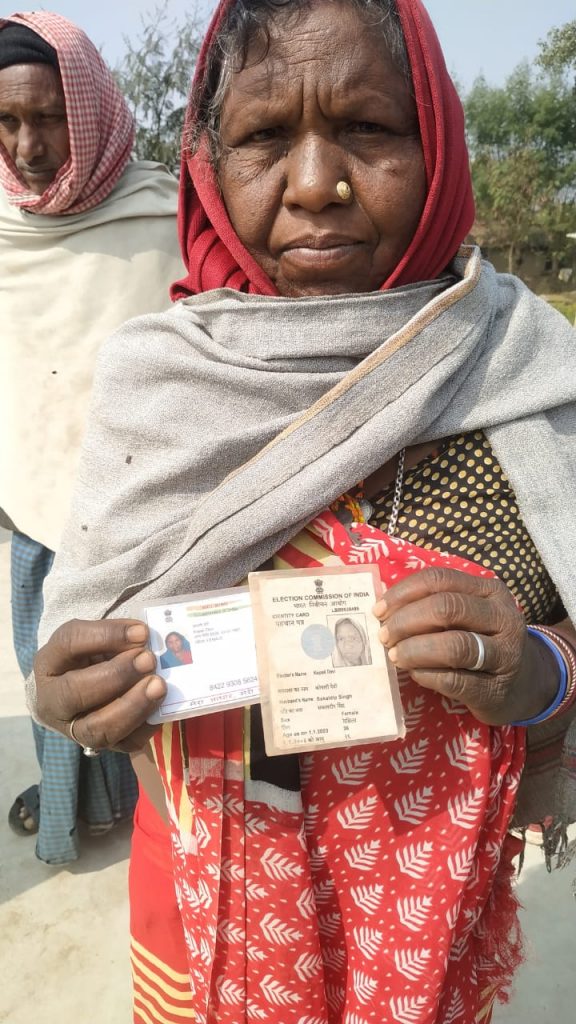
Somariya Masomat and Parwati Masomat from a landless Dalit household of Dorami village in Barwadih block of Latehar are not able to apply for a pension because they do not have Aadhaar. They are the only two in the family.
After a complaint, they were provided 10 kg of rice by the administration, but this is just a quick fix. Structural technology exclusion makes their lives harder than they already are.
On 28 November 2001, the Supreme Court issued a strict order that pensions should be paid promptly by the 7th of each month. Twenty years later, long delays are still rampant.
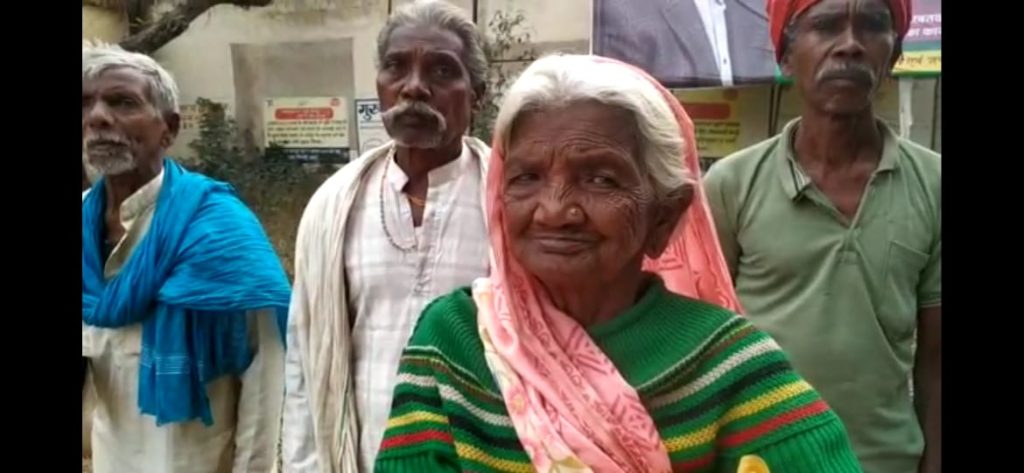
For large groups, biometric authentication doesn’t work, because exclusions are likely to take place. We have seen confirmation that it doesn't work in manual labour situations. That was seen as a major issue at NREGA. Bank accounts must be connected (or ‘seeded’) to Aadhaar before an account transfer. Therefore, even for non-Aadhaar-based payments, Aadhaar has created many problems, among others, such as incorrectly-seeded, inactive, and disabled Aadhaar.
Tetri Devi from Kochla village in Barwadih block is not getting any pension. She is tired of running from pillar to post in government offices to find out about her application.
For the most marginalized groups, social security pensions are a critical means of funding.
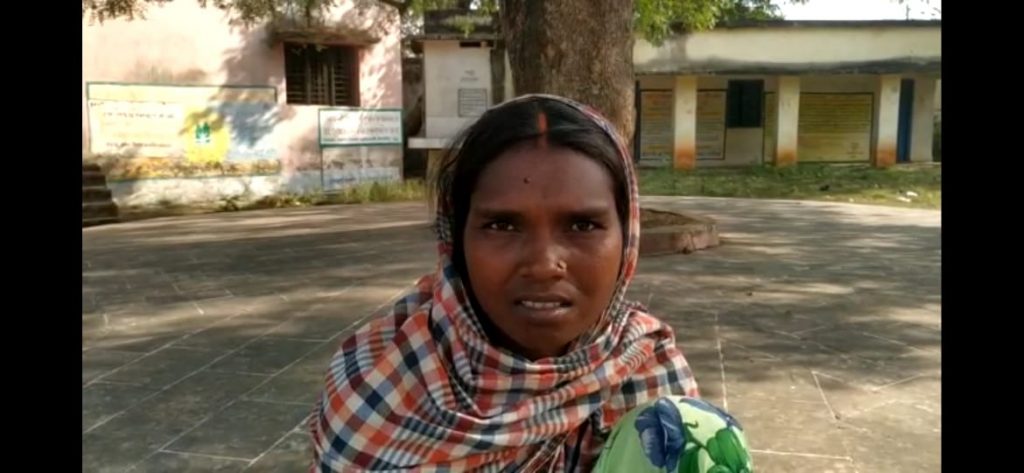
Aadhaar links have destroyed current payment processes, triggering missed payments, allowing “ghost accounts” to be generated, and culminating in misdirected payments.
Sanichari Devi, a widow from the PVTG community, is from Barichattan Village. She has been struggling to receive the disability pension of her 20-year-old daughter Dilwa Kumari. As an uneducated single mother, the pension was supposed to be a big relief for her, and she doesn’t even understand why she hasn’t received it. A large reason for inaccessibility here is the information gap.
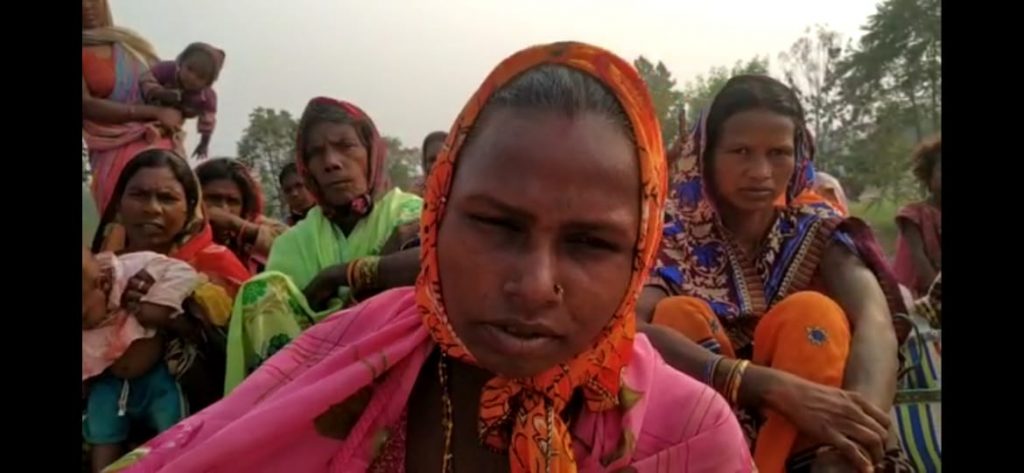
The most prominent reason for delayed payments is the Aadhaar-Enabled Payments System (AePS). Since their banking information was not related to the Aadhaar numbers, an estimated 5.3 crore construction workers faced delayed payments. At least two sources revealed that a substantial proportion of transaction errors resulted from the surge in AePS payments during the lockdown.
Dheeraj, a social activist from the area, claims that banking systems being highly dependent on technology is causing a very wide accessibility gap. “During the lockdown, many were unable to visit the bank. Many whose Aadhaars were disabled had further problems. Another inaccessibility arises with proving disability, producing proof of age, or death certificates of the husbands in case of widows,” he says.
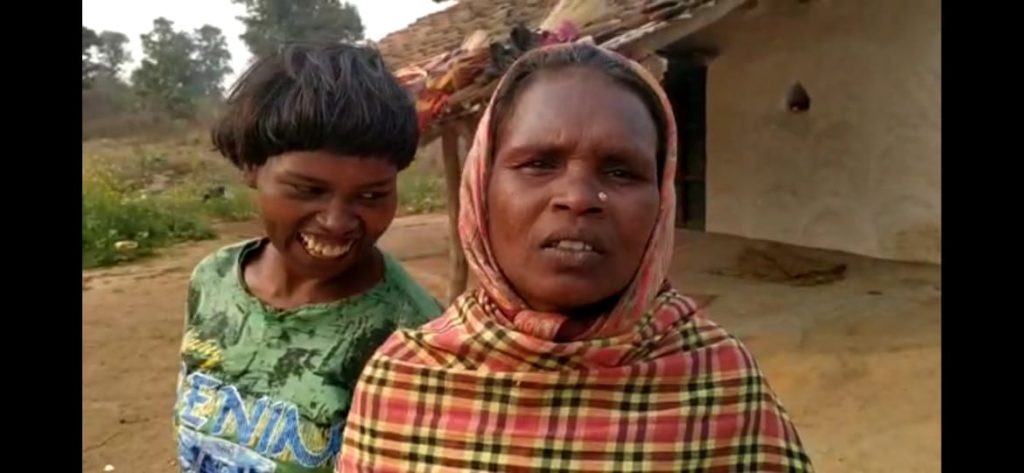
Anti Devi from Nawadih village, Chungru panchayat, has not received her pension for the last five years. The old-age pension of Kopli Devi from the Kharwar Tribal community (Village-Kuchila) is not sanctioned because both as per her Aadhaar, her age is not 60. Both these women say they are tired of running to and fro from banks.
During the dharna, a startling story emerged about the reason why old-age pensions have been held up for 6 months in Jharkhand, as follows. In Jharkhand, old-age pensions are paid at the rate of Rs 1,000/month, of which Rs 300/month comes from the central government under the National Social Assistance Programme (NSAP) and the rest from the state government. “NSAP money was used during the national lockdown to pay two instalments of Rs 500 to elderly persons under Pradhan Mantri Garib Kalyan Yojana (PMGKY). As a result, the money ran out for the central contribution of Rs 300/month, and pension payments stopped for months (they cannot be made until both central and state contributions are available). The problem is now being rectified through the “supplementary budget”,” Dheeraj told TwoCircles.net.
Gita Devi, a woman from the Korwa PVTG community (Village Kuchika) has had a PVTG pension, that she is entitled to, discontinued.
An assessment of the extent of realization of the key relief entitlements across 25,032 Scheduled Caste and Scheduled Tribe households in India titled “Delayed and Denied”, by the National Campaign on Dalit Human Rights (NCDHR) brought out some deeply stark statistics.
22% of the SC and ST households together reported having old-age pensioners in the households, with 22% widow pensioners, and 4% disability pension holders, but 68% of the SC and 59% of ST pension-holders were yet to receive the ex-gratia assistance as on October 2020.
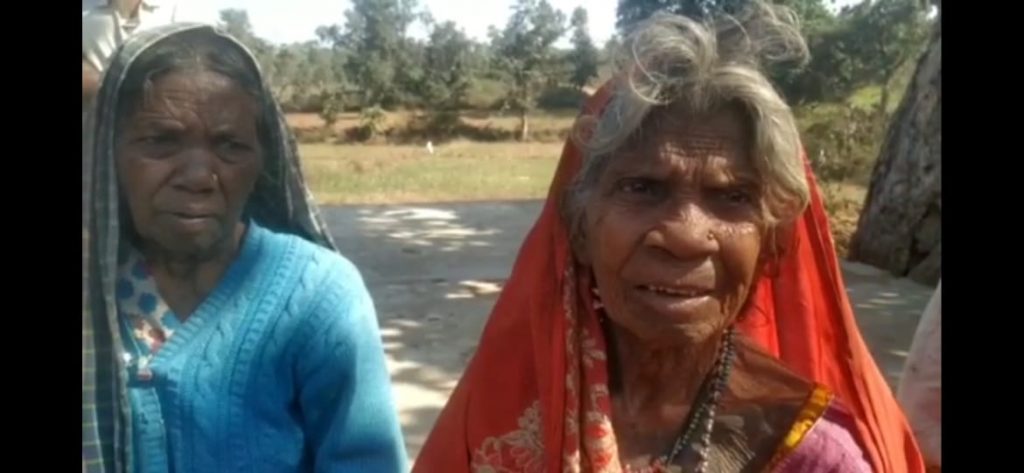
The Centre using up the funds of NSAP to pay off promises by PM Narendra Modi under his relief package scheme PMGKY is the reason many of these women were on the streets asking for payments they were entitled to. Aadhaar-enabled and biometric-enabled systems worsened this crisis.
The main demands of this protest are the prompt payment of pensions by the 7th of each month, as per SC orders, monthly pensions of at least Rs 2,500 per month, universal coverage, and immediate sanction of all pending applications.
Bandhu Parhaiya and Kabutri Devi, an elderly couple from Matnag village, have not received their pensions since June 2020. Bandhu, who can barely see due to cataract, finds the pension amount inadequate and demands Rs. 2500 per month. Bandhu and Kabutri walk back home from the protest as Bandhu struggles to see the way.
Suchitra is an independent journalist working on social justice, focusing primarily on gender justice. She tweets at @Suchitrawrites
